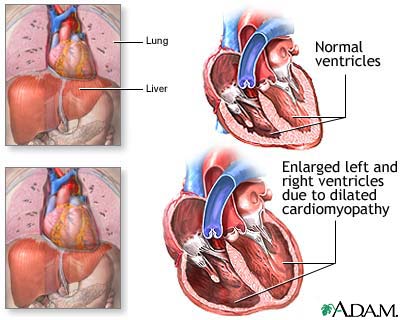 |
| Rheumatic Heart Disease |
Symptoms of Rheumatic Heart Disease
In most cases a person who gets rheumatic heart disease will have had rheumatic fever, and before that strep throat. If the strep throat is not properly cared for it can turn into rheumatic fever which can turn into rheumatic heart disease. The symptoms of rheumatic fever will begin to show up about three weeks after the symptoms of strep throat show up.
* Fever.
* Swollen and painful joints all over the body.
* Pain that starts in one joint but suddenly jumps to another joint without warning.
* Heart palpitations and a rapid heartbeat.
* Shortness of breath or trouble breathing during normal activities.
* Skin rashes all over the body.
* Extreme fatigue at all points during the day.
* Nodules under the skin that are small and pain free.
Preventing Rheumatic Heart Disease
* Treat strep throat with penicillin in order to prevent rheumatic fever from developing.
* Continuous antibiotic treatment until the symptoms of rheumatic fever subside.
* Living a healthy lifestyle. Take care of your body so your body takes care of you.
If you have been diagnosed with rheumatic fever then you are at risk for developing rheumatic heart disease. The disease can occur at any point in life even after you rid yourself of rheumatic fever. Since the onset is quick and sudden, it is important to take the time to properly monitor the condition with your doctor. If you are diagnosed with rheumatic heart disease your doctor will be able to get you on a treatment plan that can help to minimize the potential of serious consequences.







